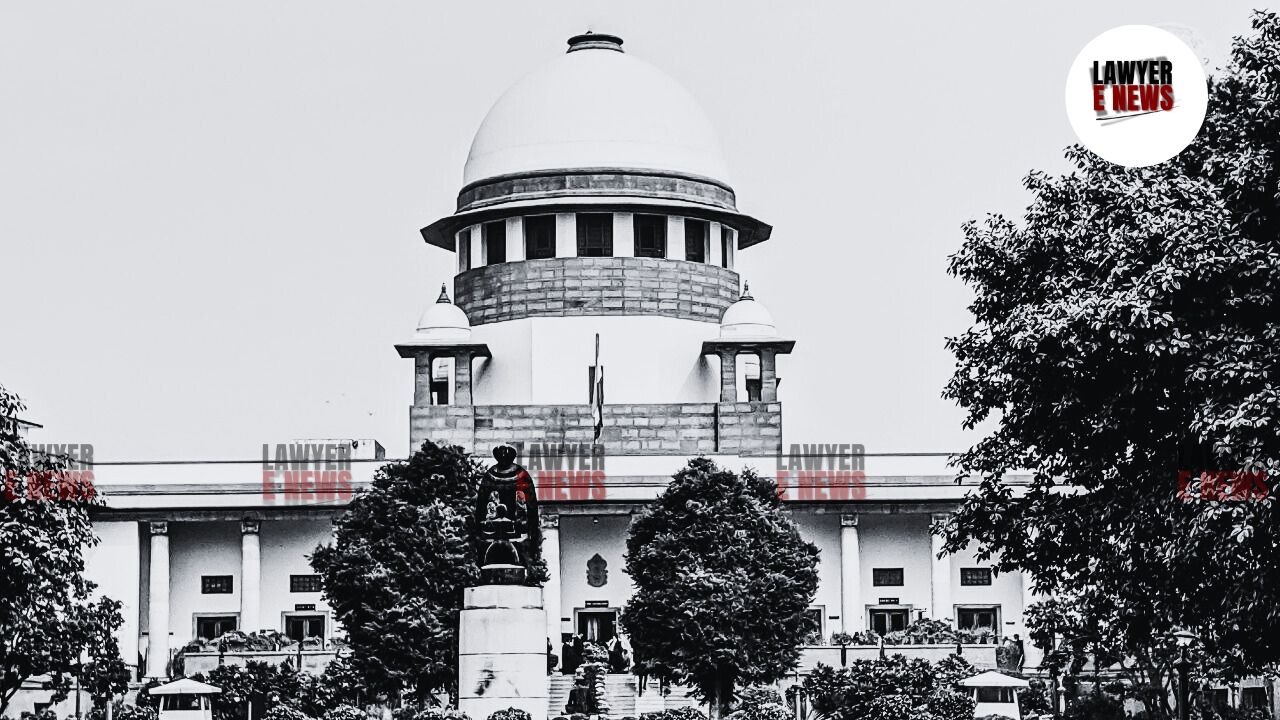-
by Admin
16 February 2026 1:47 PM



In a significant ruling, the Supreme Court of India has substantially enhanced the compensation awarded to a motor accident victim, recognizing that 100% functional disability must be reflected in a just compensation award. The Bench of Justice Sanjay Karol and Justice Prashant Kumar Mishra increased the compensation from ₹6,78,000 (awarded by the Tribunal) and ₹25,68,938 (granted by the High Court) to ₹37,51,000, ensuring that the victim receives fair compensation for his loss of earning capacity, pain, and suffering.
"Compensation must not be a mere mathematical exercise—it should reflect the real hardships suffered by the victim and ensure financial justice," the Court observed while modifying the award.
The case arose from a road accident on June 24, 2014, when Nur Ahamad Abdulsab Kanavi, a 27-year-old motorcyclist, was hit by a rashly driven goods vehicle bearing No.KA-16/A-6260 near Kashambi village. The collision resulted in severe injuries that left him bedridden for two months, leading to permanent disability and loss of earning capacity.
The victim filed a compensation claim of ₹30,00,000 under the Motor Vehicles Act, 1988, stating that he was a Goundy (construction worker), earning ₹10,000 per month and was the sole breadwinner for his family.
The Motor Accident Claims Tribunal (MACT), Hangal, in its decision dated December 4, 2020, awarded ₹6,78,000 with 6% interest per annum, calculating his monthly income at ₹7,500 and his permanent disability at only 20%.
Dissatisfied, the victim appealed before the Karnataka High Court, which enhanced the compensation to ₹25,68,938, acknowledging 100% permanent disability and including future prospects in the calculation. Still, the income was not revised from ₹7,500 to ₹10,000 per month, leading to the present appeal before the Supreme Court.
"A Labourer’s Income Cannot Be Underestimated Without Justification"
The Supreme Court found that both the MACT and the High Court erred in assessing the victim’s income.
"In cases where formal proof of income is absent, courts must take a pragmatic approach. The claimant’s oral testimony regarding his income, if reasonable, should not be disregarded without contrary evidence," the Court ruled.
Citing Chandra v. Mukesh Kumar Yadav (2022) 1 SCC 198, the Bench relied on the wife’s testimony in that case to assess income, holding that in the present case, too, the claimant’s stated income of ₹10,000 per month should be accepted in the absence of any material to contradict it.
"Functional Disability Must Reflect Real Loss of Livelihood"
The Court upheld the High Court’s finding of 100% disability, noting that the victim, being a construction worker, could no longer earn a livelihood.
"A disability that prevents a person from performing their previous occupation must be treated as 100% functional disability, even if medical disability is assessed lower," the Court stated.
The Supreme Court, applying the multiplier of 17 (since the claimant was 27 years old) and considering future prospects, enhanced the compensation to ₹37,51,000, a significant increase from the previous awards.
"The objective of compensation is to restore dignity and financial security to the victim, ensuring that the economic impact of the accident is fully accounted for," the Court remarked.
"Justice in Compensation Requires a Human Approach"
This ruling underscores the Supreme Court’s commitment to ensuring that compensation awards truly reflect the real impact of disability and financial loss. It reinforces that income assessments in motor accident cases should be based on practical realities rather than rigid documentation requirements and that functional disability must be evaluated in terms of actual livelihood loss.
"When the law is meant to provide relief, courts must not hesitate to apply it with a human approach. Compensation must serve its intended purpose, not just follow a formula," the Court concluded.
Date of decision: 11/02/2025
